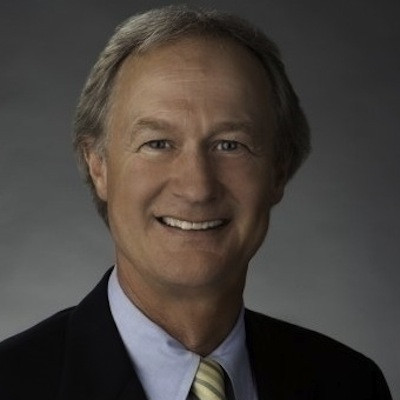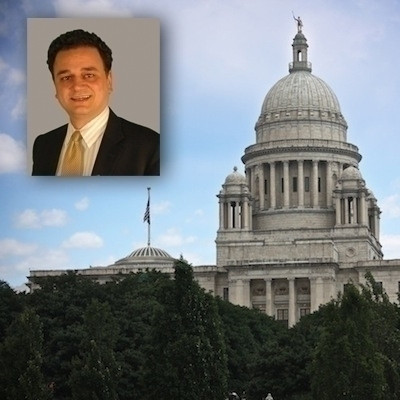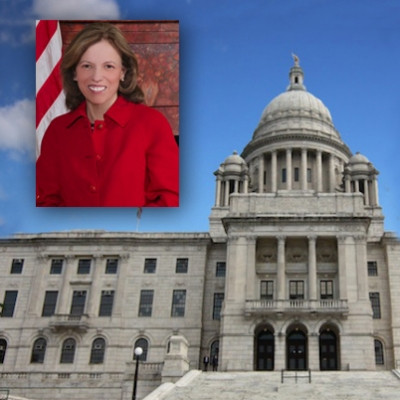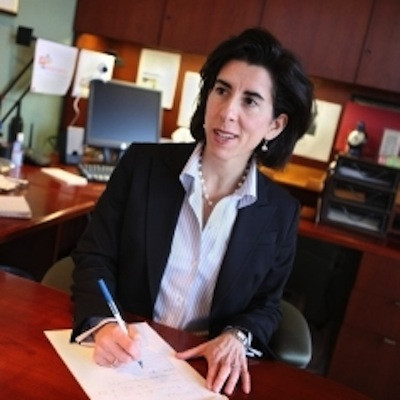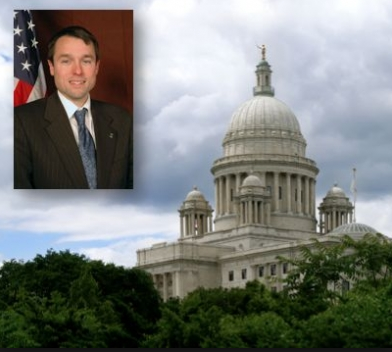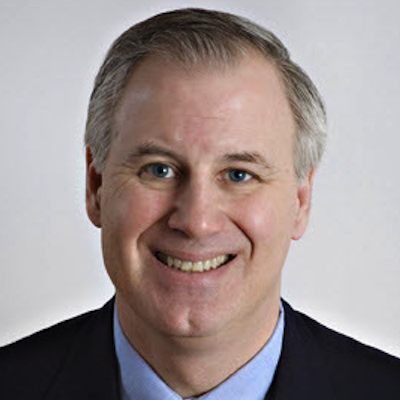Group Opposed to Paolino Casino Proposal in Newport
Tuesday, May 06, 2014
Will table games be back on the ballot in 2014 in Rhode Island for Newport Grand? Several developers and investors are betting on it.
Following the revelation that former Mayor of Providence Paolino, along with an investor team including Peter de Savary and Paul Roiff, signed an agreement with Newport Grand owner Diane Hurley, a new video opposed to the effort was unveiled on the site's website on Monday, less than two years after Newport voters defeated a tables game measure in 2012 by a vote of 52.9% to 47.1%.
See Opposition Video BELOW
"Citizens Concerned About Casino Gambling is made of members who oppose gambling for a number of various reasons," said group member and Newport City Councilman Justin McLoughlin. "We're not uniform -- we're kind of like Unitarians. It's people who oppose casino gaming on moral grounds, those who don't see as good for community, some who don't see it as good economic policy, those who oppose it because it doesn't appear to make sense."
GET THE LATEST BREAKING NEWS HERE -- SIGN UP FOR GOLOCAL FREE DAILY EBLASTMcLoughlin continued, "Are you buying a pretty pig, and just to dress and sell it? A pretty rendering does not make a successful outcome for a community."
While not with the "concerned citizens" group, Mike Stenhouse with the Rhode Island Center for Freedom and Prosperity voiced his opposition.
"The insatiable appetite for revenues by our political class, whether in the form of higher taxes, new fees, or gambling proceeds is what has been strangling our state's economy for decades," said Stenhouse. "It must stop. No matter how they take money out of the pockets of families and businesses, and then spend it on their priorities or their friends, it's bad for economic growth, and the cycle only perpetuates itself. We must cut spending - and taxes - to save our state."
Paolino said that he has had communication with those opposed to expanded gaming in Newport, including the Concerned Citizens group.
"I said to them that even though we may have a disagreement, we don't have to be disagreeable," said Paolino. "If anyone states that they want to stop gaming, there has already been gaming in Newport for years."
"This is just another form of gaming -- once you see with Foxwoods, what they plan to do in Fall River, we're talking 200 people out of jobs," Paolino continued, referring to the potential impact from competition in Massachusetts for Newport Grand just over the state border, with Rhode Island expected to lose $422 million in five years from Massachusetts casinos.
Paolino Unveils Plans
The artist rendering of how Newport Grand would look with a $40 million upgrade from Joe Paolino and partners.
Paolino noted that the lobbyist for the effort would be current Newport Grand lobbyist Chris Boyle, and paid for by Newport Grand. Newport Grand owner Diane Hurley did not respond to request for comment on Monday.
"Over $3 million has been invested already to bring up the facility up to code," said Paolino. "We're concerned that how it looks, it's just not attractive. What we want to see it become is a Monte Carlo. It's not going to compete with big casinos-- it's a boutique facility. It will have entertainment. We'll work with Newport Jazz Festival, folk festivals, not just in the summertime, but for winter, fall, to use our facility."
Paolino addressed what he perceived would be a major distinction in 2014, as opposed to 2012.
"We're encouraged, because the people of Newport voted for Twin River last election," said Paolino. "We believe it was voted down in Newport last time because [voters] believed there would be satellite facilities," noting that the investor proposal would be for the current Admiral Kalbfus Road location -- and nowhere else. "It would be only that site," Paolino said.
English international entrepreneur, yachtsman and philanthropist de Savary spoke to the economic impact of the facility -- as well to points made by opponents.
"[Newport] receives $1 million a year [from Newport Grand], and the state, $20 million," said de Savary. "It's important that this is maintained, hopefully by what we plan on doing -- creating a full entertainment venue. If we spend $40 million to improve the facility, you'll attract more people, and range of people from all over."
de Savary addressed the argument that an enhanced casino could take away from the existing business base. "We think it's compatible with the character of Newport, to the grand mansions, the attractive Tennis Hall of fame... I think we can create something here that looks attractive coming over the bridge."
"It's like saying we've got 25 shops in town, we better not add another. I don't think that's in the best interest of Newport. Two plus two won't come to four -- there are people who are afraid it's 3, but it's actually 5."
Twin River, whose table games ballot effort, unlike Newport Grand, was successfully approved in 2012, is among those who support the Paolino group efforts in Newport.
"As was the case two years ago, we support the addition of table games at Newport Grand. A competitive, strong Newport Grand is good for the State from a revenue and jobs perspective, particularly as we brace for the eventual impact of casinos in nearby Massachusetts," said Twin River spokesperson Patti Doyle.
Looking Forward
Voters statewide -- and in Newport -- will need to approve table games on the ballot this November for a new investment in the property announced this week to move forward.
"I anticipate that the one distinguishing factor in a proposal moving forward is that there would be unequivocal language that any facility would be located its current location and no where else," continued Paiva-Weed, who added that it was "premature" to discuss terms prior to the Newport City Council voting on a resolution requesting that the question be placed on the November ballot.
Senator Lou DiPalma, whose district includes Little Compton, Tiverton, Middletown, and Newport has been part of the Citizens Concerned About Casino Gambling Group in the past -- and said he will continue to oppose efforts to expand gaming at Newport Grand.
"[Newport Grand owner] Diane Hurley has been looking for buyers for a while, and she's doing the best she can with the facility she has," said DiPalma. "My take is this. I don't knock anyone who likes going to a casino. I've been to Las Vegas, I've been to Twin River twice. If it's how people chose to entertain themselves, power to them."
DiPalma continued, "However, we need development that adds to the GDP of our state, which isn't gambling. I don't have the silver bullet. Growing the economy is hard work. We need the residuals of say tech companies, something that contributes to the GDP from a products or services perspective."
"Lottery's the third largest revenue source for Rhode Island. We'll certainly be impacted by Massachusetts," said DiPalma. "Our challenge is our reliance in the state on casino gambling. We're addicted to it."
VIDEO
Related Slideshow: 7 Strategies for Rhode Island Economic Development in 2014
What will it take to move the Rhode Island economy forward in 2014? GoLocal talked with elected officials, candidates, and leaders for their economic development plans in the coming year.
Below are key elements of the economic priorities for Governor Lincoln Chafee, Speaker of the House Gordon Fox, Senate President M. Teresa Paiva-Weed, House Minority Leader Brian Newberry, gubernatorial hopefuls General Treasurer Gina Raimondo and Ken Block, and RI Center for Freedom and Prosperity's Mike Stenhouse.
Related Articles
- NEW: House to Vote on Newport Grand Table Game Referendum Today
- Gambling Company’s suit against Narragansett Indians goes to Court
- Dan Lawlor: Casino Gaming Won’t Save Rhode Island
- MA Residents Spent Almost $1 Billion at NE Casinos
- Russell Moore: Gambling is an Economic Development
- State Report: Voter Fraud, Schilling’s Meltdown & Casino Gaming
- NEW: Senate Approves Table Game Vote for Newport Grand
- Deadline Approaches For MA Casino Developers
- NEW: House bill calls for ‘Casino Impact Task Force’
- State House Report: Gambling Revenues, Student Loan Rates & the Ban on Tanning
- Worcester Slot Casino Unveiled - A Threat to Twin River?
- Will Foxwoods Funded Fall River Casino Sink Newport Grand?
- Group Opposed to Paolino Casino Proposal in Newport
- NEW: MA Gamblers Account for Majority of Visits to RI Casinos
- State House Report: House Budget, Gambling & Compassion Centers
- NEW: Chafee Says State Must Protect Gambling Revenue
- Can Casino Gaming Save Rhode Island?
- New Gambling Tax on the Table Today
- NEW: Twin River Casino to Add 14 Table Games, 90 Jobs
- State Report: Problem Gambling, 38 Studios & Millions for Medicare
- Can Online Gambling Save RI?
- Casino Job Gains May be Short-Lived
- Problem Gambling a Concern as Rhode Island Prepares for Table Games
- NEW: Twin River Worldwide Holdings to Acquire Casino in Biloxi, MS
- THE BIG POLL #7 - GAMBLING
- Casino Gambling: Is 2012 The Year?
- RI Expected to Lose $422M Revenue in 5 years to MA Gambling
- RI State Report: More Tolls, Bryant Pays + Casino Theft
- Kilmartin Calls for Oversight of Casino Gambling
- Donna Perry: Gambling on a Jobs Strategy
- Casino Wars Heat Up: $1 Billion at Stake
- Guest MINDSETTERS™: Quonset Casino a Bad Bet for Rhode Island
- Russell Moore: Make Twin River A Destination Resort Casino
- State House Report: Schools, Civil Liberties & Casino Gaming…
- NEW: House OKs Newport Grand Bill
- Gambling Bill to Go Before House Committee
- Casinos Pour Millions into Table Games Question
- Guest MINDSETTER™ Dan Lawlor: Casinos are a Bad Bet for Rhode Island
- State House Report: Casinos, Legislative Health Insurance & Gubernatorial Appointments
- State Report: 38 Studios, Legislative Raises & Casino Gaming





